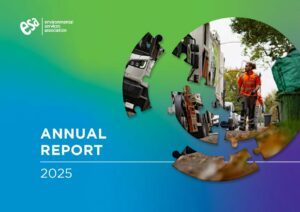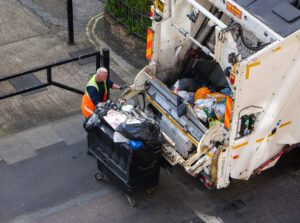Charlotte Rule, ESA Climate and Energy Policy Advisor summarises the recent independent review of the UK’s Net-Zero target progress by Chris Skidmore MP.
An independent review of the UK’s net-zero target progress, published last week by Chris Skidmore MP, found that Government must deliver greater certainty, consistency and clarity across net-zero policy-making, and recognised that delivering a more circular economy is a priority for achieving net-zero.
The review, entitled Mission Zero, was commissioned in September 2022 with the purpose of understanding how the UK can maximise the economic opportunities associated with the transition to net-zero carbon emissions. The Prime Minister applauded the outcomes of the report and announced that we can expect a response to the independent recommendations in the coming year.
Within the report, there was overwhelming consensus that achieving Net Zero represents “the economic opportunity of the 21st century”. At its core is an acknowledgement that UK industry is ready and willing to invest in the technologies needed, but long-term stability and clarity in policy is the key to delivery.
The commitment from the Environmental Services Association (ESA) and its members to invest £10 billion in recycling infrastructure over the next decade was commended in Mission Zero. We called for policy clarity to ensure this investment can deliver a ‘win-win-win’ scenario by reducing GHG emissions from resource use, increasing UK GDP, and delivering jobs.
Of particular help for our sector would be a clear plan of action on Defra’s Resources and Waste Strategy (RWS) and clarity over the treatment of energy recovery within the Emissions Trading Scheme (ETS). On the latter, Mission Zero recommends that Government should develop a pathway for the ETS until 2040, setting out a timeline for the application of new sectors, such as resources and waste.
The report identifies the circular economy as a priority in addressing net-zero and recommends “a mission to kickstart the transition to a circular economy” and to urgently deliver on Defra’s Resources and Waste Strategy commitments. It acknowledges the importance of a circular economy in achieving Net Zero alongside driving down costs for businesses and individuals, creating new jobs, and reducing exposure to rising commodity prices.
The review also recommends the development of a joint taskforce on circular business models, working to end the export of plastic waste, and acknowledges the need for Extended Producer Responsibility policies to promote reuse, repair, remanufacturing, and rental alongside recycling.
The role of Energy from Waste (EfW), coupled with carbon capture, is recognised within the report and the review suggests Government develops a clear CCUS roadmap showing the plan beyond 2030. Additionally, by 2024 it recommends that Government develops a strategy for how dispersed sites can connect to a CCS network and what support should be offered for doing so. On EfW in particular, the review acknowledges the value of biomass and waste as resources for use in different sectors such as transport, heating, power, and wider industrial applications, and suggests Government continues to support these fuel types in line with their carbon savings and waste hierarchy principles.
Additionally, the report acknowledges the role of individual behaviour to ensure resources are consumed more efficiently – reducing emissions and supporting greater circularity in our economy. It suggests that Government should work to guarantee that repairing products is cost-effective, as well as ensuring consistent collections and recycling services are implemented nationally.




